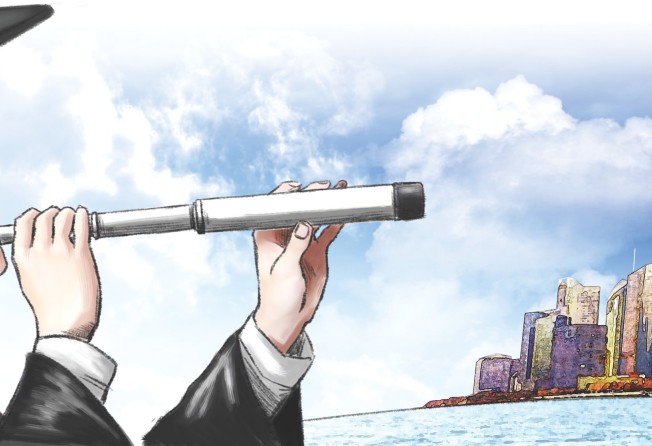
China needs fewer white collar graduates, more people with ideas
Scarce resources will not be blue or white collar workers or capital, but people who create ideas

"I'm 30. I'm unemployed. And I live in my parents' basement." This is a young person's ultimate nightmare. Every generation since the 1970s in the US, Canada and Europe has faced difficult employment prospects. Today, economic and technological developments support and contradict each other in ways that have created both employment opportunities and hazards. Hong Kong and mainland grads aren't alone in their frustrating job search in an increasingly uncertain world.
Western graduates in slow-growth, developed economies are used to a shortage of entry-level jobs to start their chosen careers. The anguish and frustration have become a cultural and comedic centerpiece of movies.
The recent post-financial crisis saw many unemployed young adults move back into their parents' basement to subsist on microwaveable food until the job market improves. The existential hero, the lovable slacker-loser who is stuck in the hopeless employment orbit of shopping mall fast food courts, convenience stores and other dead end jobs also finds its own version over here.
In Vancouver, unemployed liberal arts grads are advised to learn welding so they can assemble pipelines to carry oil and petroleum destined for China. And in China, employers also want fewer university grads and more skilled workers. So in a short 20 years, both mainland and Hong Kong markets have acquired the benefits and afflictions of developed employment markets.
In 2014, about seven million students graduated from universities and colleges across the mainland, but their employment prospects appear bleak. The mainland exacerbated the problem when it quadrupled the number of students enrolled in universities and colleges over the last decade.
Even as the mainland middle class expanded and more families sent their children to college, the rising number of unemployed graduates is a troublesome sign. A 2013 national survey found that in the age group of 21 to 25, 16 per cent of the men and women with college degrees were unemployed. But the rate for those with an elementary school education was only 4 per cent.
Technology can cheaply create substitute services for a growing set of white collar jobs. So it is not necessarily a good time to be a white collar labourer. Technology also increasingly substitutes for capital so all capital holders should not expect outsized returns. That explains why Jack Ma Yun suddenly became richer than Li Ka-Shing.
On the mainland, the professional quality of university grads has dropped as the university quota has expanded. Mainland grads don't want to work in a factory or in regional cities. They prefer living in major cities. Blue collar workers enjoy more job security and protection than white collar workers. The white collar employment space is more independent and aggressive. The economy has transformed quickly from blue to white collar to knowledge worker.
Despite the oversupply of graduates in China, Hong Kong grads can and should compete for jobs in China, where the economy is more broadly based than Hong Kong's. A typical white collar job at a local consulting or research firm offers monthly salaries from 4,000 yuan (HK$5,000) to 5,000 yuan for fresh graduates with bachelor degrees; 3,000 yuan plus commission for salespeople; and 6,000 yuan for master's degree holders. A Hong Kong grad will be paid the same as their mainland counterpart.
Hong Kong employees are liked because their experience allows them to work across business functions and segments. They possess an integrated view of businesses covering marketing, manufacturing and finance that mainlanders are just beginning to understand. Hong Kong employees make quicker progress and generally relate better to local and international bosses and clients.
But, today's graduates must realise the future beyond mere employment. The scarcest economic resources will not be ordinary blue or white collar labourers or financial capital, but people who can create new ideas and innovations. More than ever before, people with ideas, not workers or investors will dominate as the scarce resource.
Innovations in cloud computing, social media and microblogging have unified the global marketplace. Labour and capital are seamlessly mobile and almost exchangeable regardless of physical location. Hong Kong graduates can exploit this to their advantage.
Peter Guy is a financial writer and former international banker